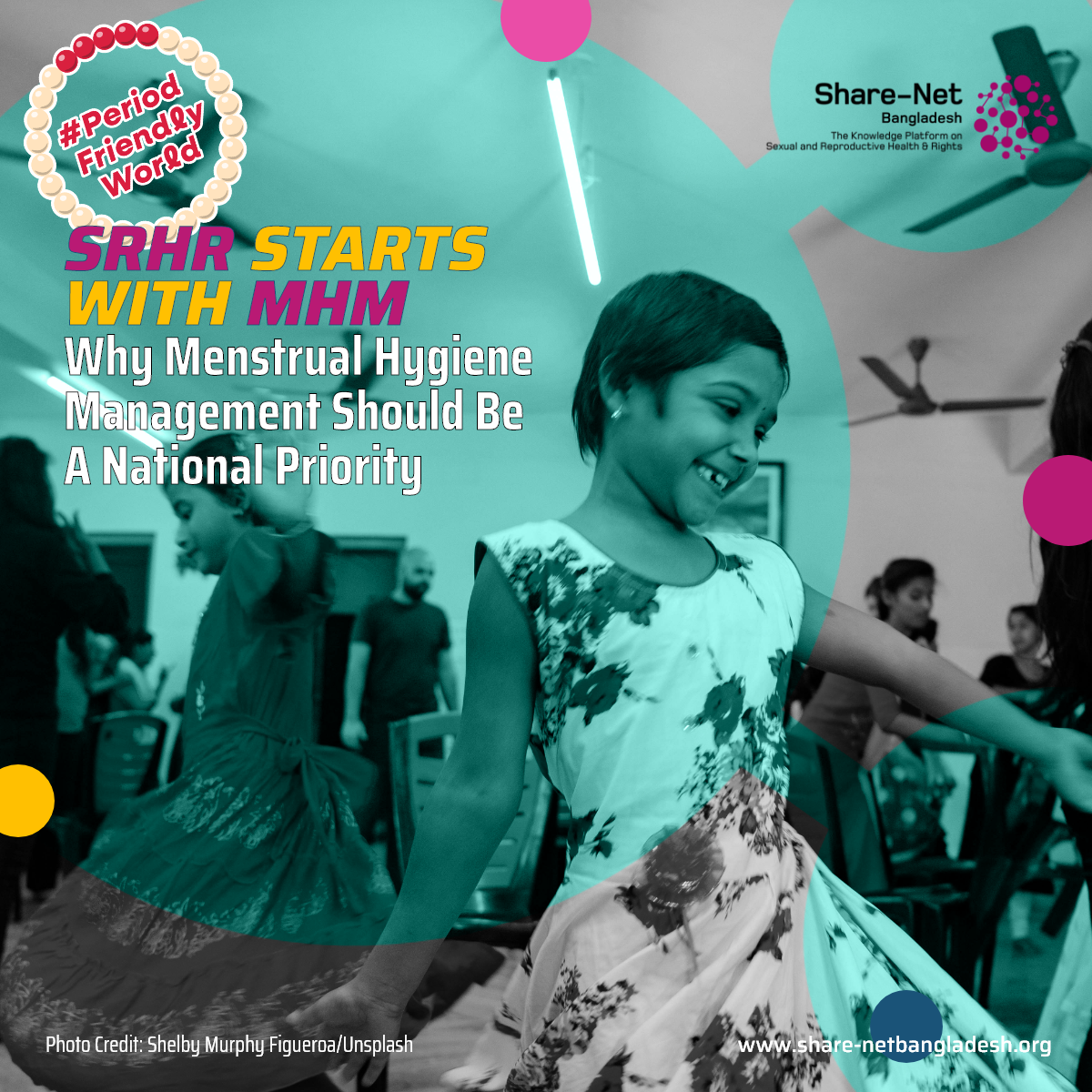SRHR Starts With MHM: Why Menstrual Hygiene Management Should Be a National Priority
For millions of low-income women and girls in Bangladesh, managing periods is not just about hygiene—it’s about dignity, equity, and access. While sanitary pads are the most used menstrual hygiene product, affordability, limited awareness, and poor infrastructure still make safe menstruation a privilege rather than a right.
According to recent research by Innovision Consulting, supervised by WaterAid Bangladesh, 71% of women in Bangladesh have used sanitary pads at least once in their last three cycles, with rural usage (69%) slightly surpassing urban (60%). Interestingly, adolescent girls in urban areas report the highest usage (87%). However, 33% still rely on cloth, a method particularly common among urban low-income women (44%)—raising health risks. As one respondent noted, “I have no choice. Clothes are all I can afford.”
Menstrual cups and reusable pads remain underused, with only 0.17% and 0.4% adoption respectively, mostly due to low awareness. While 98% of respondents are aware of sanitary pads and tampons, only 27% know about reusable pads and 13% about menstrual cups. Most users hear about disposable pads from family, while NGOs and the media are key in introducing sustainable options.
This highlights a serious gap in menstrual health literacy. 18% of cloth users report health problems like rashes and infections, and some pad users report odour and discomfort. By contrast, menstrual cup users—though few—reported no adverse effects. In a country where the average monthly income for many households hovers around or below the poverty line, the lack of affordable and sustainable menstrual hygiene products worsens period poverty, especially for garment workers and rural women.
So what can Bangladesh do to tackle these issues?
First, subsidising menstrual products—especially biodegradable options like banana fibre pads—and ensuring they are widely available in both urban slums and rural areas is key. The current practice of increasing quantity under the same price tag doesn’t help those who can’t afford the original price in the first place.
Second, Bangladesh must invest in awareness campaigns and menstrual health education through schools, community clinics, and workplaces. This means promoting reusable options, conducting demos, and breaking cultural taboos.
Third, infrastructure matters. Building clean, private spaces for washing and drying clothes in homes and factories can prevent infections and reduce stigma. Waste management for used pads must also be addressed, especially in urban areas.
Finally, this issue must align with Bangladesh’s National Menstrual Health Management Strategy and be part of the larger SRHR (Sexual and Reproductive Health and Rights) policy framework. Menstrual health isn’t a side issue—it’s central to women’s health, school retention, workforce participation, and overall dignity.
As Bangladesh celebrates World MHM Day 2025, it must ensure that no girl or woman is left behind because of her period.
Source: MHM Platform Bangladesh
Photo Credit: Shelby Murphy Figueroa/Unsplash

